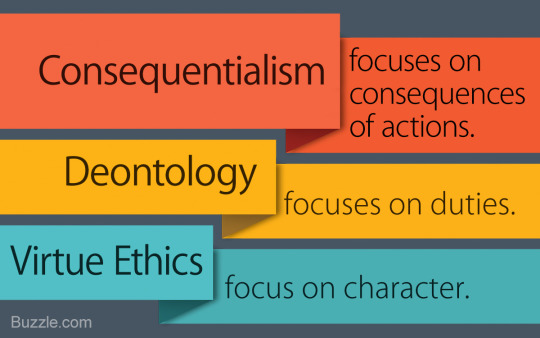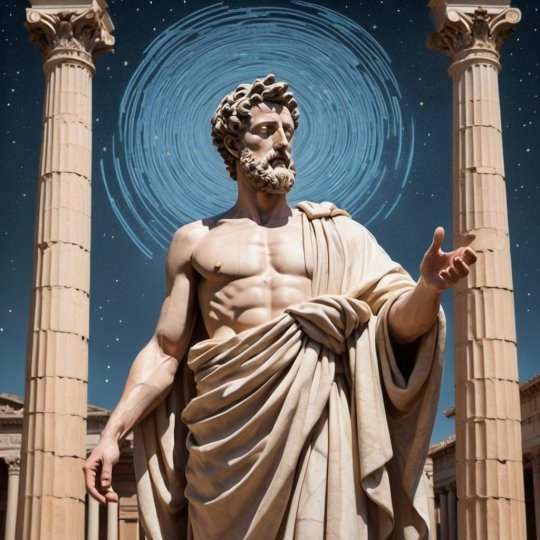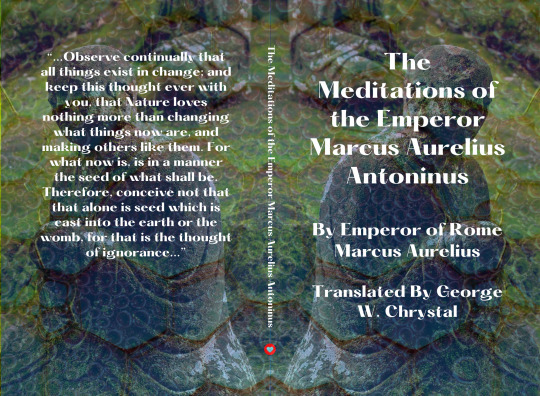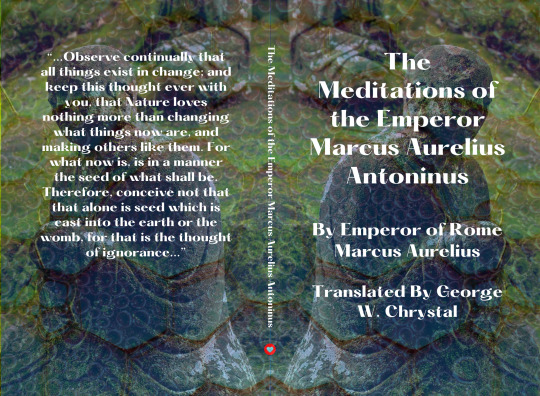#virtue ethics
Text
Meta: Did Harry do anything wrong?
This meta was inspired by a conversation in @thethreebroomsticksficfest server. Tl;dr at the end.
It depends on how you define wrong vs. right. This is essentially a question for ethics – according to the main theories of ethics, utilitarianism, deontology, and virtue ethics – I want to do a little exploration of Harry’s moral decision-making. The ethical theories I present to you are told in very broad strokes – contemporary moral philosophical thought is a lot more nuanced. If you want me to go in depth with any of these, drop an ask in my ask box.
Utilitarianism: greatest good for greatest number of people, and/or consequences outweigh the method. E.g. ends justify the means. Was Harry’s use of the Cruciatus Curse against Carrow in Deathly Hallows justified? Could go one of a few ways: yes, because it was in defense of McGonagall; no, because torturing Carrow was not an appropriate defense of McG; maybe, it’s possible Carrow wouldn’t have responded to any other kind of deterrent. Utilitarianism falls short when we start justifying things to the extreme – it’s how Truman justified the dropping of the atomic bomb on Japan. His greatest good was ending the war soon, but the cost of so many innocent human lives (in this philosopher’s opinion) was unjustified. This leads us to deontological ethics.
Deontology: duty-based ethics, and/or there’s a set of rights and wrongs, and it’s never OK to commit a wrong even if the outcome is good. E.g. there are certain rules, whether written in law or not, that shouldn’t be broken. Let’s use the example of Harry using the Cruciatus Curse again. In his world, it’s considered an Unforgivable. That doesn’t necessarily imply that’s a just or right framework – law and moral goodness don’t always overlap. Does Harry think it’s always unforgivable? This is where deontological ethics gets tricky – our sense of what is universally right or wrong may not be universal, or may be biased because of the society we come from. As most people would say that torturing someone is morally wrong, even if that someone is guilty of committing all sorts of atrocities, then Harry would not be justified in using the Cruciatus Curse. Deontology has its limits when we start squabbling about moral absolutes and moral relativism, or when we start seeing poor outcomes for supposedly good actions.
Virtue ethics: we cultivate morally good behavior by developing virtuous traits. The more virtuous we become, the better our moral actions will be. An action is morally good if completed by a virtuous person. We judge an action based on the person who is taking it. While this may seem counterintuitive in some ways, think about it as a way of understanding intentions. Is Harry justified in his use of the Cruciatus Curse? It depends. Is he a morally good actor? Does a morally good actor use the Cruciatus Curse? Most of us would say no to this – intentionally hurting another person is not a sign of virtue. While virtue ethics may seem murky (it can be), a good way of thinking about it is to ask yourself “would a morally good person, or an [insert virtuous trait here] person do X?” If the answer is yes, then it’s morally good. If no, then don’t do it.
As for what I think Harry did wrong in the series, in terms of moral failures, there are a few caveats before I list these things. First, Harry is a FICTIONAL character. FICTIONAL characters are not accountable to the same morality as we are; they are vehicles to tell a story, reveal something about humanity, or entertainment. FICTIONAL Harry didn’t do anything wrong because FIGMENTS OF IMAGINATION cannot do anything wrong. If Harry were real, however, these are a few of the things that I would consider morally bad or questionable:
Use of Sectumsempra in HBP. He didn’t know what the spell did, only that it was used for enemies. He may not have known what it did, but ‘enemies’ should’ve been context enough to know that it wasn’t friendly.
Snape’s worst memory: gives us, the reader, and Harry, a ton of information about James. However, there was no moral reason to violate Snape’s privacy.
Spying on Draco in HBP: when Harry takes the Invisibility Cloak and spies on Malfoy, or when he asks Kreacher to spy on Draco. Good cause, perhaps (utilitarianism) but not necessarily right (deontology). Keeping an eye out for your neighbor and being vigilant can be good, but in this case it was not Harry’s responsibility to do so. (But remember, Harry is fictional, and in his world, adults aren’t fully competent or forthright.)
Brewing/taking Polyjuice Potion in second year. For plot = good. For deception, spying, and agreeing to Hermione stealing = bad.
Sneaking out to Hogsmeade, third year. For plot = good. For rule breaking and recklessly endangering his life (even if he didn’t know that wasn’t true) = bad.
Torturing Carrow = bad. Torture isn’t ok, Harry.
Mostly, Harry makes a lot of morally good or morally neutral decisions throughout the series. Like most people, fictional or real, Harry is not wholly morally good, and the theories above, broadly speaking, can only take us so far. Let me bring in an example of Harry leading Dumbledore’s Army in terms of its moral goodness (or badness).
Utilitarianism: Was the D.A. the greatest good for the greatest number of people? You can argue it was, because the students learned and practiced lifesaving spells that would help them in their later years. They broke school rules, but they learned to defend themselves, and others. Thus, the D.A. was a moral good.
Deontology: Was the D.A. the right thing to do? In a strict sense, no, because Harry broke the school rules. He intentionally put himself and others in detention. However, is there a greater duty to his classmates that supersedes the rules? You can argue yes, Harry had a duty, an explicit moral imperative to help his classmates. Did it have to be through the D.A.? Maybe not. In this case, the D.A. is morally questionable or perhaps morally neutral.
Virtue ethics: Is the D.A. something that a virtuous person would do? This depends a lot on your definition of virtue, and which virtue you’re referring to! Let’s take courage as a virtue. Is it courageous of Harry to lead the D.A.? I think so! Is it prudent? Maybe. This is why virtue ethics can be murky – which virtue is most important? How do virtues compare across communities? In the world of HP, I’d say the D.A. was virtuous and morally good because of the values they placed on courage, excellence, and developing skills.
Tl;dr: Harry does make morally questionable or morally bad decisions, but as he’s a fictional character, we need to be careful in judging his behavior with real-world moral theories.
#harry potter#harry james potter#philosophy#moral philosophy#ethics#utilitarianism#deontology#virtue ethics#hp meta#writing meta#harry potter meta
28 notes
·
View notes
Text
Will Graham 🤝 Benjamin Tallmadge 🤝 Louis de Pointe du Lac 🤝 Lestat de Lioncourt
Honour/morality/ethics/philosophy codes but only when it doesn’t get in the way of the plan or narrative.

Yeah, they also all look good killing people, and are my blorbos. But I’m talking virtue ethics and lesser of two evils philosophy. Also all religious/have religious trauma and hypocritical disasters (affectionate). Traumatized or insane or both (affectionate).

Will & virtue ethics - @cryptidfang.
Virtue ethics.
Aristotle & virtue theory.
Aestheticism (art for art’s sake).
#QueerQuaintrelle speaks#will graham#lestat de lioncourt#benjamin tallmadge#louis de pointe du lac#ben tallmadge#turn washington's spies#turn amc#amc turn#turn: washington's spies#hannibal nbc#meta#vampire chronicles#vc meta#morality#philisophy#virtue ethics#just bi vampire shenanigans#i said what i said#blorbo#pathetic meow meow#i have connected the dots#lying liars who lie#lies and the lying liars who tell them#american revolution#amrev fandom#vc books#amc iwtv#anne rice#queue are absolutely unpredictable
18 notes
·
View notes
Quote
Armageddon is averted by small actions. That's way it was. That's the way it always has to be.
Neil Gaiman, Only The End of the World Again.
197 notes
·
View notes
Text
What money can't buy: the Moral Limits of Markets (Micheal J. Sandel)
Sandel's lectures raise moral objections to market expansion, especially the commodification of certain "goods": surrogacy, military enlistment, and the wealth gap in democratic nations.
Sandel takes a two-pronged attack on undesirable commodification: 1) coercion and 2) corruption.
I found the appeal to corruption to be the more interesting but also finicky. (p 104) Sandel references utilitarian decision-making as a form of market-orientated thinking that degrades the goods. He specifically notes how each individual consequential consideration is flattened into pieces of utility. He calls this process, and the conversion into monetary terms a "translation" and posits that value can be lost in the process (p 105). I am partial to the argument, agreeing strongly with Sandel that commodification of certain goods degrades their value in the appraisal and is morally inappropriate, but I think that the nuance of each item, event, and being that we want to preserve by not commodifying will become an issue in defending the claim not to flatten their nuance. This is because as Sandel points out on page 106, the distinction between coercion and corruption is that coercion always appeals to consent while corruption appeals to multiple ideals from overlapping, conflicting, and simply differing ideologies -- ie the appeal against the wealth gap draws upon republican civic virtues that apply in self-government, surrogacy on the elusive definitions of parenthood that can differ between cultures, etc).
How do we argue for the preservation of value nuance from multiple ideologies without flattening the nuances or committing to relativism in the process?
#philosophy#moral philosophy#virtue ethics#economy#market expansion#market economy#ethics#relativism#utilitarianism#corruption#coercion#political philosophy
6 notes
·
View notes
Text
The Philosophy of Altruism
The philosophy of altruism explores the ethical and moral principles related to selflessness, compassion, and the welfare of others. It addresses questions about the nature of altruistic behavior, its motivations, and its implications for individuals and society. Here are some key aspects of the philosophy of altruism:
Definition and Concept: Altruism is defined as the selfless concern for the well-being of others, often involving acts of kindness, generosity, or sacrifice without expecting anything in return. Philosophers debate whether true altruism is possible or if all actions are ultimately self-interested.
Motivations for Altruism: Philosophers explore the motivations behind altruistic behavior, considering whether it arises from genuine concern for others, social norms and expectations, evolutionary instincts, or personal satisfaction derived from helping others. They also examine the role of empathy, compassion, and moral reasoning in motivating altruistic acts.
Ethical Frameworks: Altruism is often discussed within various ethical frameworks, including utilitarianism, deontology, and virtue ethics. Utilitarianism evaluates actions based on their consequences and advocates for maximizing overall happiness or well-being, which may include promoting the welfare of others. Deontology emphasizes moral duties and principles, such as treating others with respect and dignity, regardless of personal interests. Virtue ethics focuses on cultivating virtuous character traits, such as compassion and benevolence, which lead to altruistic behavior.
Altruism and Egoism: Philosophers debate the relationship between altruism and egoism, the belief that individuals are primarily motivated by self-interest. Some argue that genuine altruism is possible and represents a higher moral ideal, while others contend that all actions are ultimately self-interested, even if they appear altruistic on the surface.
Evolutionary Perspectives: Evolutionary biologists and psychologists offer explanations for altruistic behavior based on theories of kin selection, reciprocal altruism, and group selection. These theories suggest that altruism may have evolved as an adaptive strategy for promoting the survival and reproduction of individuals' genes or for enhancing the cohesion and cooperation within social groups.
Altruism in Practice: The philosophy of altruism considers practical applications of altruistic principles in various domains, including personal relationships, philanthropy, volunteering, and social justice activism. Philosophers examine the ethical dilemmas and trade-offs involved in altruistic decision-making, such as balancing the needs of others with one's own well-being or addressing systemic injustices.
Criticisms of Altruism: Critics of altruism raise concerns about its feasibility, sustainability, and potential for exploitation or manipulation. They argue that excessive altruism may lead to burnout, resentment, or enabling harmful behavior in others. Others question whether altruism should be an ethical ideal, suggesting that individuals have legitimate interests and rights to pursue their own goals and happiness.
Altruism and Happiness: Some philosophers explore the relationship between altruism and personal well-being, suggesting that acts of kindness and compassion toward others can contribute to a sense of fulfillment, purpose, and happiness. They argue that altruism not only benefits recipients but also brings psychological rewards to the giver.
Overall, the philosophy of altruism reflects on the moral significance of selflessness and compassion in human life, examining its ethical foundations, psychological mechanisms, and practical implications for individual and collective flourishing.
#philosophy#epistemology#knowledge#learning#chatgpt#education#ethics#psychology#Morality#Selflessness#Compassion#Utilitarianism#Deontology#Virtue ethics#Evolutionary psychology#Social justice#Happiness#altruism
2 notes
·
View notes
Text
Islam teaches that both men and women are equal in the eyes of Allah and should strive to embody certain virtues and values, regardless of their gender. However, there are certain qualities that are often emphasized in Islamic teachings when it comes to being a good and righteous individual, whether male or female. Some of these qualities include:
1. **Faith (Iman):** A real man, just like a real woman, should have strong faith in Allah and strive to live their life in accordance with the teachings of Islam.
2. **Integrity (Adab):** Both men and women should exhibit honesty, integrity, and good manners in their interactions with others.
3. **Responsibility (Amanah):** Real men are responsible and fulfill their obligations towards their families, communities, and society as a whole.
4. **Compassion (Rahma):** Displaying compassion, empathy, and kindness towards others is a key trait in Islam. A real man should treat others with respect and mercy.
5. **Justice (Adl):** Upholding justice and fairness in all dealings, regardless of personal biases, is an important characteristic of a Muslim.
6. **Humility (Tawadhu):** Humbleness is valued in Islam, and a real man should avoid arrogance and vanity.
7. **Self-Control (Nafs):** Both men and women should strive for self-control and discipline over their desires and impulses.
8. **Protector and Provider (Qawwam):** Islam emphasizes that men should provide for and protect their families, not as a means of superiority, but as a shared responsibility.
9. **Seeking Knowledge (Talib al-'Ilm):** Islam encourages the pursuit of knowledge and learning, which applies to both men and women.
10. **Good Character (Akhlaq):** Developing good character traits, such as patience, gratitude, and forgiveness, is essential for both men and women.
It's important to note that these qualities are not limited to men only; they apply to all Muslims, regardless of gender. Islam teaches that both men and women are partners in faith and have equal opportunities to seek closeness to Allah and contribute positively to society. Gender roles in Islam are defined in terms of responsibilities and duties, not superiority or inferiority.
#islam#quoteoftheday#aesthetic#alhamdulillah#islam quote#beautiful quote#inspiration#life quotes#allahﷻ#prophet mohammad#men#muslim men#muslim women#virtue ethics#qualities
8 notes
·
View notes
Text
The Rehearsal is just Nicomachean Ethics for virtue ethicists who hate to read
#Nathan Fielder#Neo-Aristotelian king#The Rehearsal#Nicomachean Ethics#Aristotle#virtue ethics#ethics#philosophy#practice makes perfect#so excited for The Curse later 😈#personal#the fielder method
4 notes
·
View notes
Text
Oh my god wait is My Little Pony a representation of the virtue theory of ethics or am I tripping because that's the first thing I thought of when this class explained virtue ethics
5 notes
·
View notes
Text
"De início todos nós sabemos que as coisas criadas estão em constante movimento, sobretudo as coisas corpóreas, e por conseguinte a mobilidade está mais no lado da matéria, enquanto a imutabilidade está no lado de Deus, no lado do espírito, e até no da forma inteligível das coisas deste inquieto mundo. [...] Psicologicamente segue-se que a atividade de uma alma é tanto mais alta e mais sábia quanto mais procurar as coisas e ideias imutáveis; e será tanto mais pueril, primitiva ou selvagem quanto mais vivamente se interessar pelas coisas móveis, por tudo que passa e que muda."
Gustavo Corção
#citações#citação#gustavo corção#alma#espírito#eterno#quotes#citas#soul#spirit#eternity#virtue ethics#vice#virtudes#vícios
2 notes
·
View notes
Text
If Aristotelian Virtue Ethics has millions of fans, I’m one of them. If Aristotelian Virtue Ethics has ten fans, I’m one of them. If Aristotelian Virtue Ethics has only one fan, that is me. If Aristotelian Virtue Ethics has no fans, that means I’m no more on Earth. If the world is against Aristotelian Virtue Ethics, I’m against the world. Til my last breath because I’m an Aristotelian Virtue Ethicist.
8 notes
·
View notes
Text
Defining the Human Good
The determination of one's morality is, at its core, a subjective process. Defining the human good can look different depending on which moral philosophy you prescribe to: consequentialism, deontology, or virtue ethics.

Consequentialism is an outcome-based theory. It focuses on the consequences (outcomes) of an action to argue whether that was a morally good or bad decision. To a consequentialist, a good outcome warrants justification of that action/decision being morally correct. Vice versa, a negative outcome means the action was morally incorrect and not to be repeated. For example, committing a murder brings about jail time and ruins your life – thus it is a bad action.
Deontology theory categorizes good and bad actions based upon duties; there are certain moral rules and societal laws to follow. If an action is morally wrong, it should not be done. For example, committing a murder is against the law, as well as a sin, and is viewed as a negative action to a deontologist.
Virtue ethics instead focuses on the inherent virtue's of a persons character. The focus lies on human behavior and analyzing which traits constitute the human good. This theory stems from the base of a person's moral character, with their actions coming as a secondary piece to reflect this character. Someone with a steady moral character will exhibit consistent signs and actions of their inner virtues. For example, if someone commits a murder, virtue ethics doesn't focus on the consequences of this action or even the action itself. Virtue ethics would hone in on the flawed moral character and sick mindset that allowed a person to commit this crime.
At first thought, all of these theories seem fairly straightforward (even if you don't necessarily agree with them). Virtue ethics presents as the most logical and earnest of the theories, with a focus on the innate quality of a person's virtue. It doesn't fall back on bendable moral rules or random consequences to ground its belief.
However, all three of these theories can be challenged by the slightest morally ambiguous decision. Not all actions are as cut-and-dry as a murder. Life is incredibly complex, especially in our modern world with many different interpretations of good and bad, moral and immoral. Depending where you live, what religion you believe in, and the community environment you surround yourself by, these guiding principles can look very different. What if you murder someone in self-defense? What if it's an accident? What if they were a bad person? Very quickly, it becomes impossible to deliver an exact verdict on 'good' or 'bad' in this type of situation.
It simply isn't realistic to define the human good based upon one exact theory or definition. Morality is not black and white, but rather an ever-changing arena of opinions and virtues.
1 note
·
View note
Text
Stoicism: The Ancient Philosophy That's Guiding Today's Changemakers
Have you ever found yourself caught in the whirlwind of life’s difficulties, seeking a beacon of stability? Well, you’re not alone. Some of the most influential figures of our time (and times past) have turned to an ancient philosophy known as Stoicism to navigate the tumultuous seas of existence. Yes, Stoicism – the time-tested wisdom that teaches us the value of self-control, resilience, and…

View On WordPress
#Ancient Wisdom#Andrew Tate#Arianna Huffington#Barack Obama#Contemporary Influencers#Courage and Resilience#Ethical Living#Historical Figures#Inspirational Leaders#Justice and Fairness#Life Balance#Malala Yousafzai#Marcus Aurelius#Mental Strength#Moderation and Balance#Modern Leadership#overcoming adversity#personal development#Personal Growth#philosophy#self-control#Self-Improvement#Stoic Philosophy in the Modern World#Stoic Principles#Stoicism#Success Stories#Virtue Ethics#Wisdom in Leadership
0 notes
Text
Aspects of the Philosophy of Mercy
The philosophy of mercy revolves around the concept of compassion, forgiveness, and leniency towards those who have committed wrongdoing or are in need of help and support. It explores the moral and ethical considerations involved in extending mercy to others, as well as the implications for justice, morality, and human relationships.
At its core, the philosophy of mercy examines questions such as:
What is the nature of mercy, and what motivates individuals or societies to show mercy?
How does mercy intersect with concepts such as justice, fairness, and punishment?
What are the ethical principles that guide decisions regarding when and to whom mercy should be extended?
What are the psychological, social, and spiritual benefits of practicing mercy, both for the giver and the recipient?
How does mercy contribute to the cultivation of empathy, compassion, and understanding in individuals and communities?
What are the limits of mercy, and are there situations where it may be inappropriate or unjustifiable?
How does the philosophy of mercy intersect with various religious, cultural, and philosophical traditions, and what insights can be gained from these perspectives?
In what ways can mercy be institutionalized or integrated into social and legal systems to promote a more compassionate and humane society?
Overall, the philosophy of mercy encourages thoughtful reflection on the nature of human kindness and empathy, as well as the moral responsibilities that come with recognizing and responding to the suffering and vulnerability of others.
#philosophy#epistemology#knowledge#learning#chatgpt#education#ethics#psychology#Compassion#Forgiveness#Justice#Morality#Empathy#Kindness#Social justice#Humanitarianism#Virtue ethics
3 notes
·
View notes
Text
Temperance - Virtues at Work
Temperance – Pietro del Pollajolo (1470)
“Temperance is a tree which has for its root very little contentment, and for its fruit calm and peace.”
Gautama Buddha
“The well-ordered mind knows the value, no less than the charm, of reticence. The fruit of the tree of knowledge … falls ripe from its stem; but those who have eaten with sobriety find no need to discuss the processes of…

View On WordPress
0 notes
Text
Reflecting on Stoic Wisdom: A Review of "The Meditations" by Marcus Aurelius Antoninus

"The Meditations" by Marcus Aurelius Antoninus, translated by George W. Chrystal, offers readers an intimate glimpse into the mind of one of history's most renowned Stoic philosophers and Roman emperors. Composed as a series of personal reflections and philosophical musings, this timeless work serves as a guide to living a life of virtue, resilience, and inner peace. Written during Marcus Aurelius's reign as emperor of Rome in the 2nd century AD, "The Meditations" is a testament to the enduring relevance of Stoic philosophy in navigating the challenges of everyday life.
Chrystal's translation of "The Meditations" preserves the eloquence and wisdom of Marcus Aurelius's original text, allowing readers to delve into the emperor's profound insights with clarity and accessibility. Through Marcus Aurelius's meditations, readers are invited to contemplate fundamental questions of human existence, including the nature of virtue, the impermanence of life, and the importance of cultivating inner strength and resilience in the face of adversity. Whether addressing themes of self-discipline, gratitude, or the acceptance of fate, Marcus Aurelius's timeless wisdom resonates with readers of all backgrounds, offering practical guidance for living a meaningful and fulfilling life.
One of the most compelling aspects of "The Meditations" is Marcus Aurelius's emphasis on the importance of moral integrity and self-awareness. Throughout the text, he encourages readers to cultivate virtues such as humility, kindness, and compassion, while also admonishing against the pitfalls of vanity, greed, and arrogance. By engaging in self-examination and reflection, Marcus Aurelius teaches readers how to align their thoughts and actions with the principles of Stoic philosophy, thereby achieving a state of inner tranquility and contentment.
Moreover, "The Meditations" offers readers a unique glimpse into the inner workings of Marcus Aurelius's mind, revealing the struggles and challenges he faced as both a philosopher and a ruler. From grappling with the transient nature of power and fame to confronting the inevitability of death, Marcus Aurelius's meditations are imbued with a profound sense of humility and wisdom that transcends the boundaries of time and place. As readers immerse themselves in his reflections, they are inspired to confront their own fears and insecurities, while also embracing the inherent beauty and fragility of life.
In conclusion, "The Meditations" translated by George W. Chrystal is a timeless masterpiece of Stoic philosophy that continues to inspire and enlighten readers around the world. Marcus Aurelius's profound insights and timeless wisdom serve as a beacon of light in an often turbulent world, offering solace, guidance, and hope to all who seek to live a life of virtue and purpose. Whether read for its philosophical depth, its practical wisdom, or its profound insights into the human condition, "The Meditations" remains an indispensable companion for anyone on the journey of self-discovery and personal growth.
"The Meditations" by Marcus Aurelius Antoninus, is available in Amazon in paperback 12.99$ and hardcover 18.99$ editions.
Number of pages: 179
Language: English
Rating: 10/10
Link of the book!
Review By: King's Cat
#The Meditations#Marcus Aurelius Antoninus#Stoicism#Philosophy#Ancient philosophy#Roman Empire#George W. Chrystal#Translation#Inner peace#Self-reflection#Virtue ethics#Stoic wisdom#Resilience#Inner strength#Self-awareness#Stoic principles#Roman emperor#Personal reflections#Practical philosophy#Life lessons#Stoic philosophy#Ancient wisdom#Self-discipline#Gratitude#Acceptance#Humility#Virtues#Moral integrity#Tranquility#Contentment
0 notes
Text
Reflecting on Stoic Wisdom: A Review of "The Meditations" by Marcus Aurelius Antoninus

"The Meditations" by Marcus Aurelius Antoninus, translated by George W. Chrystal, offers readers an intimate glimpse into the mind of one of history's most renowned Stoic philosophers and Roman emperors. Composed as a series of personal reflections and philosophical musings, this timeless work serves as a guide to living a life of virtue, resilience, and inner peace. Written during Marcus Aurelius's reign as emperor of Rome in the 2nd century AD, "The Meditations" is a testament to the enduring relevance of Stoic philosophy in navigating the challenges of everyday life.
Chrystal's translation of "The Meditations" preserves the eloquence and wisdom of Marcus Aurelius's original text, allowing readers to delve into the emperor's profound insights with clarity and accessibility. Through Marcus Aurelius's meditations, readers are invited to contemplate fundamental questions of human existence, including the nature of virtue, the impermanence of life, and the importance of cultivating inner strength and resilience in the face of adversity. Whether addressing themes of self-discipline, gratitude, or the acceptance of fate, Marcus Aurelius's timeless wisdom resonates with readers of all backgrounds, offering practical guidance for living a meaningful and fulfilling life.
One of the most compelling aspects of "The Meditations" is Marcus Aurelius's emphasis on the importance of moral integrity and self-awareness. Throughout the text, he encourages readers to cultivate virtues such as humility, kindness, and compassion, while also admonishing against the pitfalls of vanity, greed, and arrogance. By engaging in self-examination and reflection, Marcus Aurelius teaches readers how to align their thoughts and actions with the principles of Stoic philosophy, thereby achieving a state of inner tranquility and contentment.
Moreover, "The Meditations" offers readers a unique glimpse into the inner workings of Marcus Aurelius's mind, revealing the struggles and challenges he faced as both a philosopher and a ruler. From grappling with the transient nature of power and fame to confronting the inevitability of death, Marcus Aurelius's meditations are imbued with a profound sense of humility and wisdom that transcends the boundaries of time and place. As readers immerse themselves in his reflections, they are inspired to confront their own fears and insecurities, while also embracing the inherent beauty and fragility of life.
In conclusion, "The Meditations" translated by George W. Chrystal is a timeless masterpiece of Stoic philosophy that continues to inspire and enlighten readers around the world. Marcus Aurelius's profound insights and timeless wisdom serve as a beacon of light in an often turbulent world, offering solace, guidance, and hope to all who seek to live a life of virtue and purpose. Whether read for its philosophical depth, its practical wisdom, or its profound insights into the human condition, "The Meditations" remains an indispensable companion for anyone on the journey of self-discovery and personal growth.
"The Meditations" by Marcus Aurelius Antoninus, is available in Amazon in paperback 12.99$ and hardcover 18.99$ editions.
Number of pages: 179
Language: English
Rating: 10/10
Link of the book!
Review By: King's Cat
#The Meditations#Marcus Aurelius Antoninus#Stoicism#Philosophy#Ancient philosophy#Roman Empire#George W. Chrystal#Translation#Inner peace#Self-reflection#Virtue ethics#Stoic wisdom#Resilience#Inner strength#Self-awareness#Stoic principles#Roman emperor#Personal reflections#Practical philosophy#Life lessons#Stoic philosophy#Ancient wisdom#Self-discipline#Gratitude#Acceptance#Humility#Virtues#Moral integrity#Tranquility#Contentment
1 note
·
View note